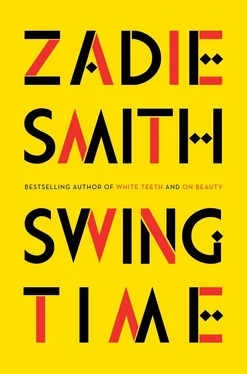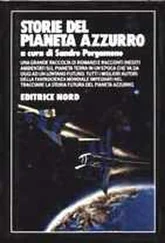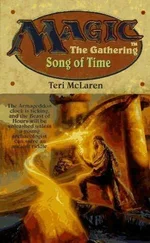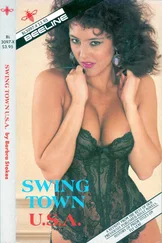• • •
How happy I was to see Hawa, genuinely happy! It was lunch time when I kicked open the door, and also cashew season: everyone was arranged in circles of five or six, crouched around large bowls of the fire-blackened nuts that had to now be removed from their burned shells and placed in a series of luridly tie-dyed buckets. Even very small children could do this so it was all hands on deck, even for incompetents, like Fern, who was being laughed at by Hawa for his relatively tiny mound of shells.
“Look at you! You look like Miss Beyoncé herself! Well, I hope your nails are not too fancy, my lady, because now you have to come and show this poor Fern man how it’s done. Even Mohammed has a bigger pile — and he’s three!” I abandoned my single rucksack at the door — I had also learned to pack — and went to hug Hawa around her strong, narrow back. “Still no baby?” she whispered in my ear, and I whispered the same back, and we hugged yet more tightly and laughed into each other’s necks. It was very surprising to me that Hawa and I should have found a bond in this, across continents and cultures, but that’s how it was. For just as, in London and New York, Aimee’s world — and therefore mine — had erupted into babies, her own and the babies of her friends, dealing with them and talking about them, so that nothing seemed to exist except birth, and not just in the private realm, but also all newspapers, the television, stray songs on the radio seemed, to me, obsessed with the subject of fertility in general and of the fertility of women like me in particular, just so Hawa was coming under pressure in the village, as the time passed and people cottoned on to the fact that the policeman in Banjul was only a decoy, and Hawa herself a new kind of girl, perhaps uncircumcised, certainly unmarried, with no children, and no immediate plans for having any. “Still no baby?” had become our shorthand and catchphrase for all this, our mutual situation, and it seemed the funniest thing in the world whenever we exchanged the phrase with each other, we giggled and groaned over it, and only occasionally did it occur to me — and only when I was back in my own world — that I was thirty-two and Hawa ten years younger.
Fern stood up from his cashew disaster and wiped the ash off his hands on to his trousers: “She returns!”
Lunch was brought to us right away. We ate in a corner of the yard, our plates on our knees, both hungry enough to ignore the fact that nobody else got a lunch break from cashew-crushing.
“You look very well,” said Fern, beaming at me. “Very happy.”
The tin door at the back of the compound was wide open, giving on to a view of Hawa’s family’s land. Several acres of purple-tinged cashew trees, pale yellow bush and scorched black hillocks of ash that marked where Hawa and her grandmothers burned, once a month, huge pyres of household waste and plastic. It was somehow lush and barren simultaneously, and beautiful to me in this mix. I saw that Fern was right: this was a place in which I was happy. Aged thirty-two and one quarter I was finally having my year off.
“But what is a ‘year off’?”
“Oh, it’s when you’re young and you spend a year in some distant country, learning its ways, communing with the… community. We could never afford one.”
“Your family?”
“Well, yes, but — I was thinking specifically of me and my mate Tracey. We just used to watch people go on them and then slag them off when they got back.”
I laughed to myself at the memory.
“‘Slag off’? What is this?”
“Oh, we used to call them ‘poverty tourists’… You know, those kinds of students who’d come back with their stupid year-off ethnic trousers and African ‘hand-carved’ overpriced statuary made in some factory in Kenya… We used to think they were so idiotic.”
But maybe Fern himself had been one of these optimistic young hippy travelers. He sighed and lifted his finished bowl from the floor to rescue it from a curious goat.
“What cynical young people you were… you and your mate Tracey.”
The cashew-shelling was going to continue into the night. To avoid helping, I suggested a walk to the well, on the thin excuse of collecting water for a morning shower, and Fern, usually so conscientious, surprised me by saying he would come. Along the way, he told a story about visiting Musa, Hawa’s cousin, to check on the health of a new baby. When he had reached the place, a small, very basic dwelling Musa had built himself on the edge of the village, he found Musa alone. His wife and children had gone to see her mother.
“He invited me in, he was a little lonely, I think. I noticed he had a small old TV with VHS attached. I was surprised, he is always so frugal, like all mashala , but he said a Peace Corps woman who was going back to the States had left it to him. He was very keen to let me know he never watched Nollywood movies on it or any of the telenovelas or anything like that, not any more. Only ‘pure films.’ Did I want to see one? I said sure. We sit down, and in a minute I realize it’s one of these training videos from Afghanistan, boys dressed all in black doing backflips with Kalashnikovs… I said to him, ‘Musa? Do you understand what is being said in this video?’ Because a speech in Arabic was droning on and on — you can imagine — and I could tell he didn’t understand a word. And he says to me, so dreamy: ‘I love the way they leap!’ I think to him it was like a beautiful dance video. A radical Islamic dance video! He told me: ‘The way they move, it makes me want to be more pure inside.’ Poor Musa. Anyway, I thought you would find this funny. Because I know you are interested in dance,’ he added, when I didn’t laugh.
Three
The first e-mail I ever received came from my mother. She sent it from a computer lab in the basement of University College London, where she had just taken part in a public debate, and I received it on a computer in my own college library. The content was a single Langston Hughes poem: she made me recite it in full when I called her later that evening, to prove it had arrived. While night comes on gently, Dark like me— Ours was the first graduating class to receive e-mail addresses, and my mother, always curious about new things, acquired a battered old Compaq, to which she attached a doddering modem. Together we entered this new space that now opened up between people, a connection with no precise beginning or end, that was always potentially open, and my mother was one of the first people I knew to understand this and exploit it fully. Most e-mails sent in the mid-nineties tended to be long and letter-like: they began and ended with traditional greetings — the ones we’d all previously used on paper — and they were keen to describe the surrounding scene, as if the new medium had made of everybody a writer. (“I’m typing this just by the window, looking out to blue-gray sea, where three gulls are diving into the water.”) But my mother never e-mailed that way, she got the hang of it at once, and when I was only a few weeks out of college, but still by that blue-gray sea, she began sending me multiple two- or three-line messages a day, mostly unpunctuated, and always with the sense of something written at great speed. They all had the same subject: when was I planning on coming back? She didn’t mean to the old estate, she had moved on from there the year before. Now she lived in a pretty ground-floor flat in Hampstead with the man my father and I had taken to calling “the Noted Activist,” after my mother’s habitual parenthetical (“I’m writing a paper with him, he’s a noted activist, you’ve probably heard of him?” “He’s just a wonderful, wonderful man, we’re very close, and of course he’s a noted activist”). The Noted Activist was a handsome Tobagonian, of Indian heritage, with a little Prussian beard, and a lot of sweeping black hair dramatically arranged on top of his head the better to highlight a single gray streak. My mother had met him at an anti-nuclear conference two years before. She had gone on marches with him, written papers on him — and then with him — before moving on to drinking with him, dining with him, sleeping with him and now moving in with him. Together they were often photographed, standing between the lions in Trafalgar Square, giving speeches one after the other — like Sartre and de Beauvoir, only far better-looking — and now, whenever the Noted Activist was called upon to speak for those who have no voice, while on demonstrations, or at conferences, my mother was more often than not by his side, in her new role as “local councilor and grass-roots activist.” They’d been together a year. In that time my mother had become somewhat well known. One of the people a line producer on a radio show might call and ask to weigh in on whatever left-leaning debate was happening that day. Not the first name on that list, perhaps, but if the President of the Students’ Union, the editor of the New Left Review and the spokesperson for the Anti-Racist Alliance happened all to be busy, my mother and the Noted Activist could be counted on for their near-constant availability.
Читать дальше












